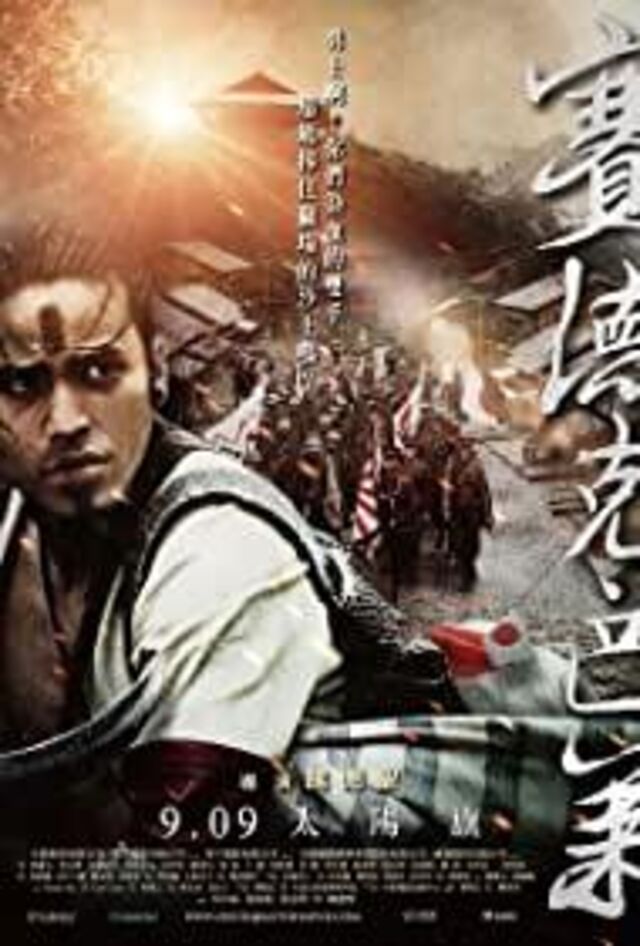Budget
$23,000,000 (estimated)
Gross US & Canada
$136,166
Opening weekend US & Canada
$57,183
Gross worldwide
$4,670,432

Budget
$23,000,000 (estimated)
Gross US & Canada
$136,166
Opening weekend US & Canada
$57,183
Gross worldwide
$4,670,432
Movie reviews
( 108 )
Add reviews
By Aryanna 2022-12-29 14:40:25
I don't know how to say it, it feels a bit complicated, after all, I don't know much about the history of the aboriginal people.
In the past, I had a faint impression that Japan was invading Taiwan and brutally killed and humiliated the aborigines.
Watching this movie, you can't see the cruel shadow of the Japanese, but it can also be seen that they are squeezing the labor force of the aborigines.
After the Japanese occupied cities and mountainous areas, they were constructive...
By Beulah 2022-12-25 08:35:59
The film tells the story of the famous Wushe incident in Taiwan's history. In 1930, an aboriginal tribe, led by leader Mona, took the initiative to attack the Japanese because of the unbearable Japanese colonial rule. Several profound issues are involved.
The first is cultural identity. Under the influence of Japanese culture, are Japanese-speaking aborigines still aborigines? What exactly is this culture or national community that we recognize? Is it really worth defending with our...
By Cletus 2022-12-25 07:02:27
Let's Fight, Bloody Aboriginal Song
A man is a man with indelible blood on his hands. So fight! Bloody aboriginal songs, human nature should be like this. To say that nature is good or evil is simply fart. If human beings really have nature, it is to live. A man hunts and protects the territory, and the hero is a hero. Women weave cloth for battle clothes. The thicker the calluses on their hands, the more respected they are. For those unsolved things, believe in the existence of gods. Singing songs passed down from generation...
By Marques 2022-12-25 05:32:29
Knowing it can't be done and doing it, great faith
Before Mona and Ichiro Hanaoka talked for the second time, I agreed with Ichiro Hanaoka, and I also thought that resistance was unnecessary.
First, from the perspective of God, the evolution of society originally replaced the backward with the advanced. The basic living materials of primitive tribes must be exchanged with the outside world, not to mention the development of advanced technology. With an attitude of sticking to the rules, the tribe will never be able to move towards...
By Jaylen 2022-12-23 06:20:18
Respect the nation, respect Mona.
This film is undoubtedly a successful film. Before watching this movie, I learned that during the filming period, the lack of funds and the evacuation of the Japanese and Korean teams caused great difficulties for the filming of the film. But in the end it was presented to me in a convincing way.
It can be said that "The Flag of the Sun", as a Taiwanese film, has set a benchmark for Taiwan's future films, and is an important turning point in recovering the spiritual culture of Taiwanese...
User comments
( 57 )
Add comments
By Lysanne 2023-09-25 18:25:34
It has an epic feel, and the soundtrack is very catchy at the beginning. The music is the essence of this film, better than everything else. But it is really a disdainful value, constantly inciting cheap nationalism and disguised naturalism, and massacres under the guise of resisting tyranny and pursuing freedom. How many innocent souls are comparable to the Boxers. With blood, there is no calmness, objectivity, pertinence and sense of...
By Clotilde 2023-09-12 07:23:40
Wei Desheng's 12 years of sharpening a sword is majestic and worthy of respect, and the soundtrack is quite awesome. Compared with the procrastination of the plot caused by too much material in the second half, the first half is undoubtedly more compact and...
By Bailey 2023-09-08 07:55:36
What's the reason for launching an uprising that must be defeated? For...
By Karson 2023-09-07 14:34:40
If your civilization is to bring us to our knees, then I will show you the pride of...
By Kellie 2023-08-19 10:14:42
The movie is full of vigor and masculinity, which is completely different from the small freshness of the previous "Cape No. 7". The plump characters and the tight storyline are full of respect for human nature, and they never incite a kind of hatred emotionally. He also did not forget to show the dignity of a nation through the pictures, which brought tears to people's eyes. Wei Desheng - pure man! Four and a half...
Yahiko Kamada: I wanted to civilize you, but you forced me to be savage.
Mona Rudao: Dakis, when you die, are you entering a Japanese shrine, or the heavenly home of our ancestors? Are you Dakis or Hanaoka Ichiro?
Ichiro Hanaoka aka Dakis Nomin: [Asking Jiro/Dakis Nawi before performing seppuku] Jiro, are we subjects of Japan's Mikado... , or the descendants of the Seediq ancestors?
Jiro Hanaoka aka Dakis Nawi: Do it. Cut it up and end your conflicts right here and now. We don't have to go anywhere once we're dead. Let's both be free wandering spirits.